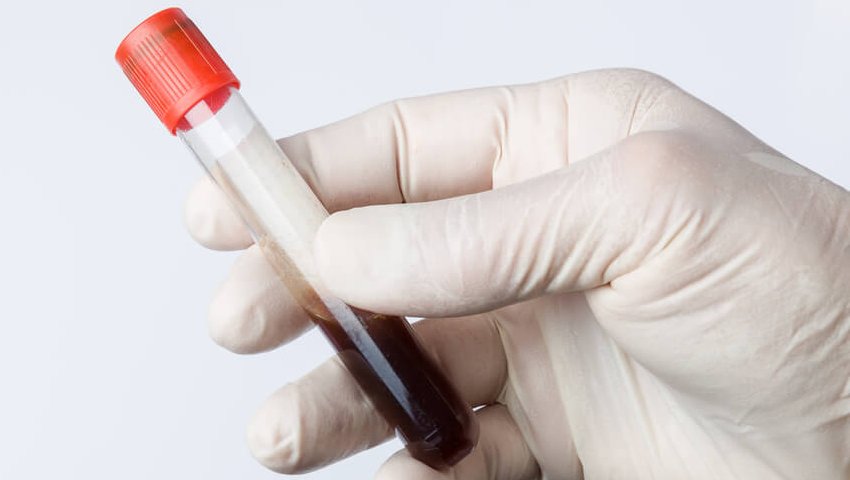
- 16/04/2025
- Leela Superspeciality Hospital
- 0 Comments
- Blogs
Is Blood in Urine Always Serious? When to Worry and When Not To
Seeing blood in your urine—whether it’s a light pink tinge or a darker red shade—can be alarming. Known medically as hematuria, this symptom can have various causes, some harmless and others that may require immediate medical attention.
At Leela Superspeciality Hospital, Dr. Akhil S Mane, an expert urologist in Pune, frequently encounters patients worried about blood in their urine. While not all cases are severe, blood in the urine should never be ignored, says Dr. Mane. In this blog, he helps demystify this condition and guide patients on when to worry—and when not to.
What is Hematuria?
Hematuria refers to the presence of red blood cells in urine, which is often visible as pink, red, or brown urine. However, in some cases, the blood is microscopic and can only be detected through a urine test. This is known as microscopic hematuria. It’s important to note that blood in the urine is not always visual, and in many cases, people may not even realize they have this condition unless they undergo routine screenings or tests.
Common Causes of Blood in Urine:
Blood in urine can result from a wide range of conditions. Some are benign, while others are symptoms of serious underlying issues.
- Urinary Tract Infections (UTIs): One of the most common causes, particularly in women. UTIs can irritate the bladder and urethra, causing bleeding.
- Kidney Stones: Sharp crystals formed in the kidneys can cause injury to the urinary tract, leading to visible or microscopic bleeding.
- Enlarged Prostate (BPH): In older men, the prostate gland can enlarge and compress the urethra, sometimes causing bleeding.
- Vigorous Exercise: Yes, even intense workouts can lead to temporary hematuria, often called “exercise-induced hematuria.”
- Menstruation or Sexual Activity: In women, sometimes blood from menstruation may mix with urine, mimicking hematuria. Similarly, vigorous sexual activity can cause minor injuries that lead to blood in the urine.
- Kidney Disease: Inflammation in the kidneys or damage to the filtering units can cause blood leakage into the urine.
- Urinary Tract or Kidney Cancer: Though rare, cancers in the urinary tract, bladder, or kidneys can present as painless blood in the urine.
When Should You Worry?
While not every instance of blood in the urine is serious, there are clear red flags that need urgent medical attention:
- Visible Blood: Any red or brown discoloration in the urine should be checked.
- Repeated Episodes: Recurrence of blood even after treatment.
- Associated Pain: Especially if it is in the lower back or side.
- Clots in Urine: Large clots may indicate heavy bleeding.
- Systemic Symptoms: Weight loss, fever, fatigue, or decreased urine output.
- Over 50 Years of Age: Higher risk for cancers and prostate problems.
Dr. Mane emphasizes, “If you see blood in your urine, especially without any pain or known cause, don’t delay a consultation. Silent hematuria can sometimes signify a hidden, serious condition.”
When It May Not Be Serious?
There are instances where hematuria isn’t cause for immediate concern:
- After Heavy Exercise: Mainly in runners or athletes.
- Temporary Effects of Certain Foods or Medications: Foods like beetroot or medications like rifampin may tint urine.
- Menstruation: Blood from the vagina can sometimes be mistaken for urinary blood.
Still, even in these cases, it’s wise to rule out medical conditions with a basic urine test.
How is Hematuria Diagnosed and Treated?
If you experience blood in your urine, Dr. Akhil S. Mane emphasizes the importance of seeking medical care for a proper diagnosis. The evaluation may involve:
- Physical Exam and Medical History Your doctor will ask about your symptoms, medical history, and any medicines you are taking.
- Urinalysis A simple urine test can help determine the cause of the hematuria and identify any infections or abnormalities.
- Imaging Tests If necessary, imaging tests like ultrasound, CT scan, or MRI may be used to look for kidney stones, tumors, or other underlying issues.
- Cystoscopy A technique where a small camera is inserted into the bladder to check for abnormalities.
Treatment relies on the underlying cause. For instance, infections are treated with antibiotics, kidney stones may require removal, and cancers may require surgery, chemotherapy, or radiation.
Prevention Tips:
While some causes are unavoidable, the following tips can help lower the risk:
- Stay Hydrated: Drink plenty of water to rinse out the urinary system.
- Avoid Smoking: Tobacco use is a known risk factor for bladder cancer.
- Maintain Hygiene: Lowers risk of infections.
- Regular Check-Ups: Specifically for people with a history of kidney disease or urinary issues.
Conclusion:
Blood in the urine is a symptom that can appear from various conditions, both serious and benign. While many cases of hematuria are not cause for concern, it’s important to be aware of accompanying symptoms and seek medical attention when necessary. Dr. Akhil S. Mane at Leela Superspeciality Hospital advises that if you’re ever in doubt about blood in your urine, it’s better to be safe and consult a healthcare professional for a thorough evaluation. Early detection and treatment of any underlying condition can significantly enhance outcomes and prevent complications.
Book an appointment today to ensure your urinary health is in expert hands.

